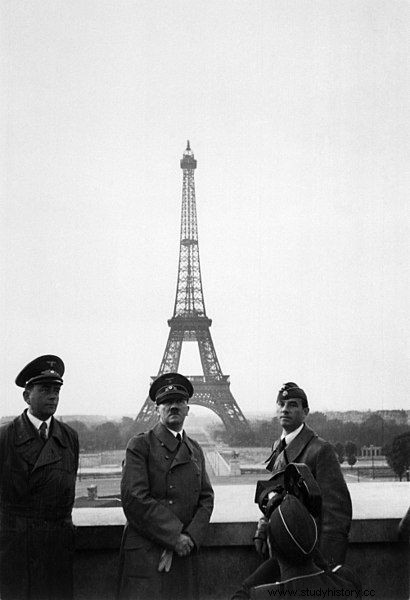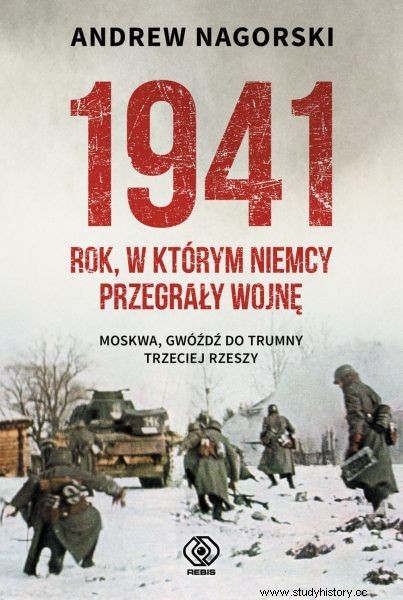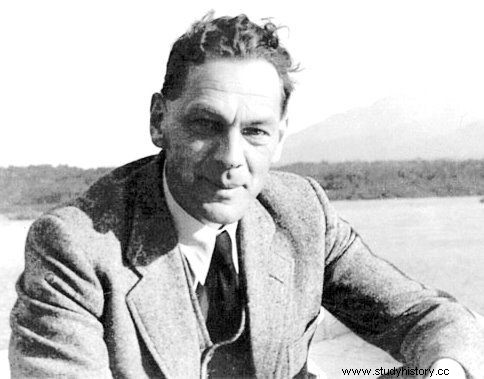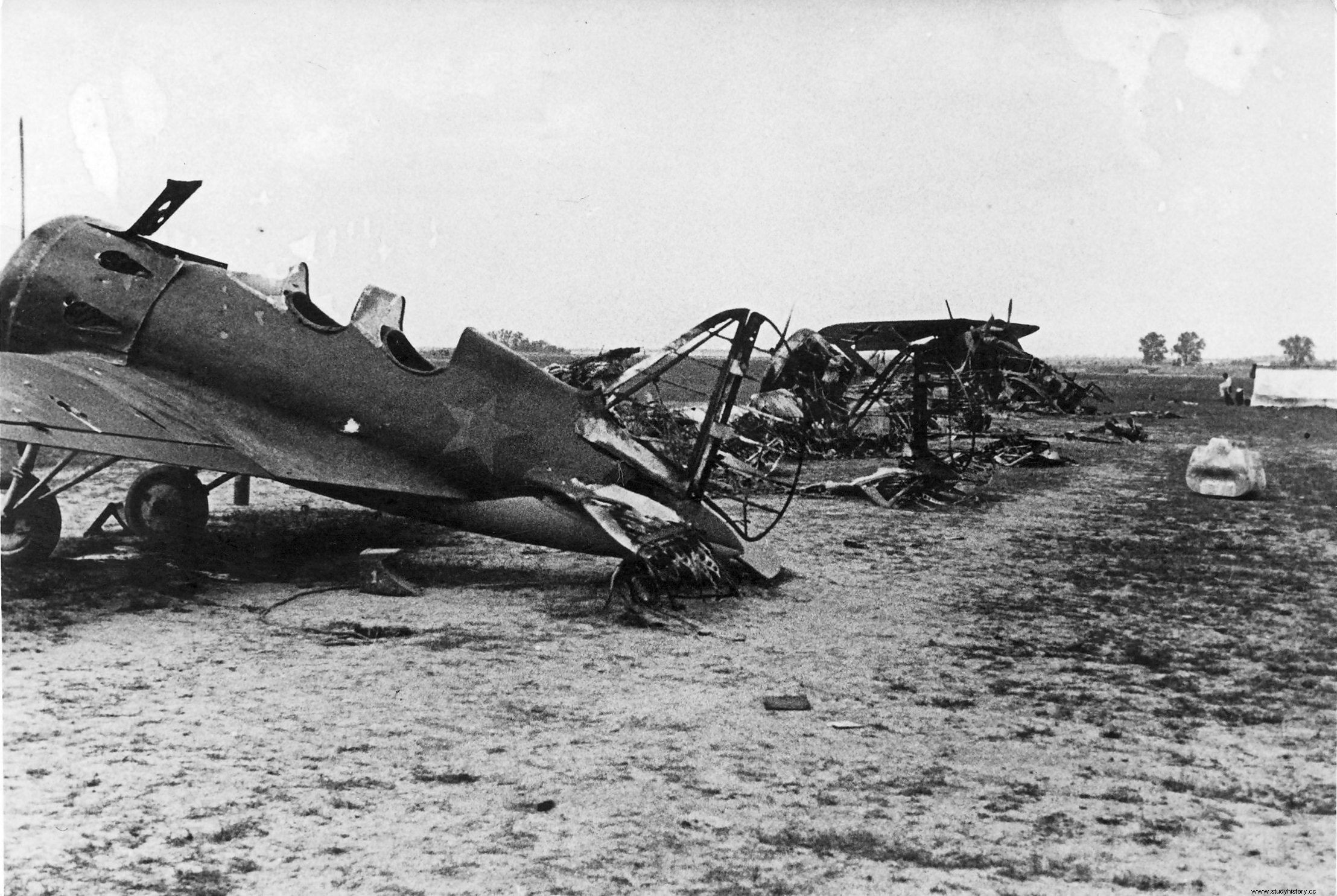The litany of errors committed by both sides of the conflict on the eve of Operation Barbarossa beats even the longest penances during the confessions of the saints. Because should a sober-minded leader throw reports of the aggression of his - to put it mildly - uncertain ally into the garbage can with the note "British disinformation"?
Instead, each leader should remove his advisers (the Führer?), Who apparently repeated to the point of boredom that the war with the Soviet Union would end in the economic catastrophe of the Reich. Stalin emerged victorious from this balance of "errors and distortions". It is possible that arrogance and self-confidence did not allow him to paraphrase Plutarch, who put the famous phrase Ἂν ἔτι μίαν μάχην νικήσωμεν, ἀπολώλαμεν - "One more such victory, and I will be finished" (in free translation).
"We're not finished yet"
Albert Speer recalled that while visiting Paris in June 1940 alongside the Führer, he was to hear from him the disturbing phrase "We are not finished yet", which, contrary to appearances, did not refer to the need to face the enemy from behind the English Channel. Although at the same time Ivan Mayski was about to deliver, "We are witnessing the collapse of the great capitalist civilization, a collapse similar to the collapse of the Roman Empire," the concept of Napoleon's breakthrough matured in the head of the Reich.

Hitler and Paris , On June 23, 1940, the leader of the Third Reich visited the capital of France for only three hours, summing up his visit with the words "But Berlin must be much more beautiful"
The new conqueror of Europe, during his short visit to the City of Light, also visited the Church of the Invalids, and in it the tomb of the French Emperor. This melancholic moment was witnessed by Pierre Huss, the Berlin correspondent of the International News Service. He recalled the words of Hitler who, when addressing his subordinates, was to say: "Napoleon, mein lieber, they made a great mistake" .
Initially, it might seem that the chief meant only the location of Napoleon's sarcophagus, but later preparations for the "attack on the whole world" (as Operation Barbarossa was called) argued that the megalomania of the Reich leader did not allow him to forget about the civilization mission related to saving Europe before communism.

Although the twisted logic of Stalin's closest advisers tried to make the thesis that the only and ultimate goal of Hitler in Europe after the conquest of France would be Great Britain, as early as August 1939, the leader of the USSR, on the occasion of signing the Ribbentrop-Molotov pact, was to address the Reich minister with the words: "Of course we don't forget that your ultimate goal is to attack us."
Are we attacking or cooperating?
As the Polish historian Antoni Czubiński wrote, “The cooperation of the two states [the Third Reich and the USSR] until June 1941 went far beyond the arrangements resulting from the non-aggression treaty. It was, in fact, a limited-range military alliance. " The economic and technological actions taken by both sides could of course lead to the erroneous impression that here are two friends in their most difficult moment trying to work for each other, supporting each other in all possible ways.
The USSR supplied Germany with crude oil (approx. 865 thousand tonnes of crude oil in 1939-1940), manganese ore (140 thousand tonnes), copper (14 thousand tonnes), nickel (3 thousand tonnes), cotton (101 thousand tonnes) ), wood (about 1 million tons), and chromium ores, asbestos, phosphates, platinum and grain. Hitler did not owe his ally in the 1939 campaign. It sent modern fighters to the East, designs for new cannons, and provided Soviet engineers with plans to build new submarines and cruisers. More than 300 German industrial companies located in the USSR additionally argued that the attack reported by foreign military intelligence agents must be the result of a British conspiracy.

Stalin's engineers visited German factories and looked at the latest models of Pzkpfw tanks. IV. They were convinced that it could not be Hitler's most powerful weapon and suspected that he was hiding something from them. However, this did not change the approach to defense preparations in the event of a possible German aggression, for which they had relatively reliable intelligence data.
The leader of the USSR, however, was so blinded or enchanted by his German ally that, without reacting, he accepted the information about the Armaments Plan B adopted by Hitler, which, in the face of the defeat of Germany in the Battle of Britain, could in principle be directed only in one direction - towards Moscow. If, however, the data for April 1941 and the intelligence reports were insufficient for Stalin, he could always reach for the then quite popular reading "Mein kampf", where the Führer once wrote:
We stop the eternal Germanic procession to the south and west of Europe and focus our eyes on the territories in the East. We are finally closing the pre-war colonial and trade policy, we are moving to continental politics, to the politics of the future. (...) The huge state in the East is ripe for collapse, and the end of the Jewish rule in Russia will also be the end of Russia as a state. Fate chose us to witness a catastrophe that would be the most powerful confirmation of the validity of the national theory of races.
My name is Trades
From the late 1940s on, Stalin received information from relatively well-informed sources that the German ally was preparing a war with "rough half-Asians" for the new year. (authored by General Günther Blumentritt).
The first reports produced a result that was not fully considered by the totalitarian autocrat - the former head of military intelligence, Ivan Proskurov, was dismissed from his post in favor of Filip Golikov, who was servile towards the USSR leader. Then the new head of the GRU faced a dilemma:inform Stalin about what he did not want to hear from Proskurov, or humble himself and take care of a job that would bring him profits in the future.
The official chose the second solution and already in February 1941, when the Soviet spy "Ariec" sent a report to Moscow, which was to confirm previous reports:The war with Russia was planned for this year, the head of the GRU put it in a drawer as insignificant. In March, Golikov received two more reports, this time from the Romanian intelligence residency. Another agent reported that in a conversation with overly talkative officers of the Wehrmacht, he had received direct information about the planned German invasion. As a result, Golikov signed each subsequent intelligence report with the comment "British provocation" and then sent it to the Kremlin .
However, not only the intelligence provided valuable information about the planned invasion. The Soviet military attaché in Berlin, Vasily Tupikov, informed Moscow in May 1941 that German strategists estimated that the Red Army would not survive even three months against the war machine of Armaments Plan B.

Richard Sorge, a Soviet double spy who tried to convince military intelligence about the planned invasion of the USSR by Germany
Richard Sorge, the "master spy" of Soviet intelligence, was also to play a role in this strange festival of ignorance . Sorge was a World War I veteran who, suffering from its cruelty, willingly succumbed to the ideology of the Bolshevik Revolution ensuring a "better tomorrow". He finished his studies in Hamburg, and then in 1924 he left for Moscow, where he received a job at the Department of Foreign Cooperation of the Comintern. 4 years later, he received an offer from General Jan Berzin to join the military intelligence structures. In 1933, Sorge began to build up the Tokyo spy network, in which, surprisingly, a key role was played by the German attaché Eugen Ott, the German industrialist Max Klausen and the Japanese communist Hotsumi Otzaki.
The only one who suspected Sorge of activity against Germany was the intelligence chief of the German security service, Walter Schellendberg. In 1940, he decided to "x-ray" Ambassador Otto's friend, but instead of finding information about the communist past in Hamburg, Schellendberg proposed to his superiors to recruit Sorge to serve the Reich. All these turmoil must have made the unfortunate Filip Golikov, who had been receiving regular reports from Sorge since May 1941, in which he was composing subsequent puzzles of the German invasion, that Sorge had betrayed. The fact that the Tokyo spy was recruited for intelligence services by Jan Berzin, who was hailed a traitor in 1938, did not help him in a detailed assessment of the situation. According to the doctrine, he had to finally sign the last report with the words:"he sold himself to the British." Paradoxically, Golikov was extremely close to the truth in this judgment.
"Hitler just doesn't know it"
On June 21, 1941, Leopold Trepper, an agent of an intelligence network code-named Rote Kapelle, demanded a meeting with the head of the Soviet military intelligence facility in Vichy, General Ivan Susłaparov. Trepper then delivered information that confirmed all reports so far: Germany will attack at dawn.
The general was supposed to answer the agent with almost stoic calm that the Japanese had just assured the Soviet authorities that the Germans were not planning a war with the USSR. at dawn, the border will be breached and the operation against Russia will begin. Stalin reacted immediately:he had two deserters arrested and the third, Alfred Liskov, shot.

Soviet planes destroyed in the first days of the German invasion, June 1941
At the border with the USSR there was already a German army concentrated in the strength of 4.6 million soldiers of all formations, 4,000 tanks and armored guns, 3,900 aircraft, additionally supported by 40 allied divisions (Romanian, Hungarian, Finnish and Slovak). It is difficult to say whether Stalin still believed that all this army was only engaged in maneuvers before the invasion of Great Britain planned for the summer. These numbers could certainly please the French Emperor mentioned in the introduction, who set off for Berezina with an equally impressive (as for his time).

During the attack in the vicinity of Minsk in the morning, Corporal Ernst Busch intercepted two messages:one with the text "We are under fire! What are we to do? ” , the second with terse feedback "You are crazy!" . This only started an avalanche of disbelief that swept the Russian command. The awakened Stalin received a phone call from Georg Zhukov informing him about the crossing of the border, to which the leader was only supposed to answer Hitler simply does not know about it! On the first day of Operation Barbarossa, 1,811 Soviet planes were destroyed, of which 1,489 did not even take off. Soviet Air Force General Ivan Ivanovich Mound, who once swore he would shoot himself if his planes were destroyed by surprise, after receiving the above reports, kept his word long ago ...
